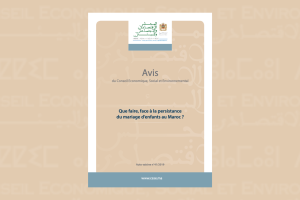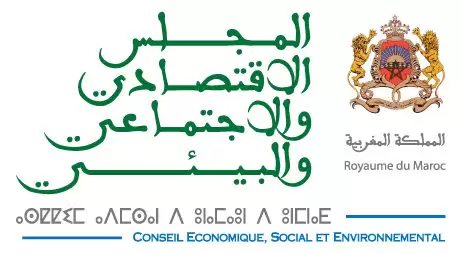
In its report on the matter, the CESE finds that child marriage is still a prevalent practice in Morocco and constitutes a major obstacle to development. The practice takes a heavy toll on children’s mental and physical health and hinders their future prospects and economic participation. So, no wonder that child marriage is considered, and rightly so, a flagrant violation of children’s human rights.
The Council emphasizes therefore the need for urgent action, already undertaken, to reduce the practice of child marriage in the best interest of children. In this sense, the Council calls on the government to adopt a comprehensive strategy to eliminate this harmful practice in support of the country’s socioeconomic development.
In its report on the matter, the CESE finds that child marriage is still a prevalent practice in Morocco and constitutes a major obstacle to development. The practice takes a heavy toll on children’s mental and physical health and hinders their future prospects and economic participation. So, no wonder that child marriage is considered, and rightly so, a flagrant violation of children’s human rights.
Despite the government’s efforts to curb the practice, child marriage continues at an alarming rate in Morocco, with 32,104 applications for child marriage registered in 2018, compared to 30,312 in 2006.
Besides, the specific provisions protecting children in the Family Code do not appear to have the greatest effect on lowering the rate of child marriage below 18 years of age.
The “derogations” under Article 20 of the Family Code, related to exceptions permitting marriage for persons under 18 years, have practically become the norm as data show that 85% of child marriage requests between 2011 and 2018 were approved by judges.
The situation is all the more alarming because only legal child marriage applications and legally contracted marriages are taken into account by the statistics of the Ministry of Justice. Unregistered traditional types of child marriage, such as “Orfi” (unofficial) marriage or “Al-Fatiha” (involves simple recitation of the first surah of the Quran) marriage, or the so-called “contract marriage” concluded between a man often living abroad and the girl’s father in return for a sum of money, do not appear in any of the official statistics.
Against this backdrop, the Council emphasizes the need for urgent action, already undertaken, to reduce the practice of child marriage in the best interest of children. In this sense, the Council calls on the government to adopt a comprehensive strategy to eliminate this harmful practice in support of the country’s socioeconomic development. The proposed strategy has three strategic focus areas with implementation measures for each:
- Further harmonize the legal framework with the constitution and international agreements by removing Articles 20, 21 and 22 from the Family Code, while expanding the scope of family mediation.
- Combat harmful practices against children and women through the sustainable and integrated implementation of various public policies and initiatives at the national and regional levels, while guaranteeing the effective implementation of the inclusive child protection policy and establishing penalties against traffickers under Law 27-14.
- Track and assess progress on eliminating the practice of child marriage.
